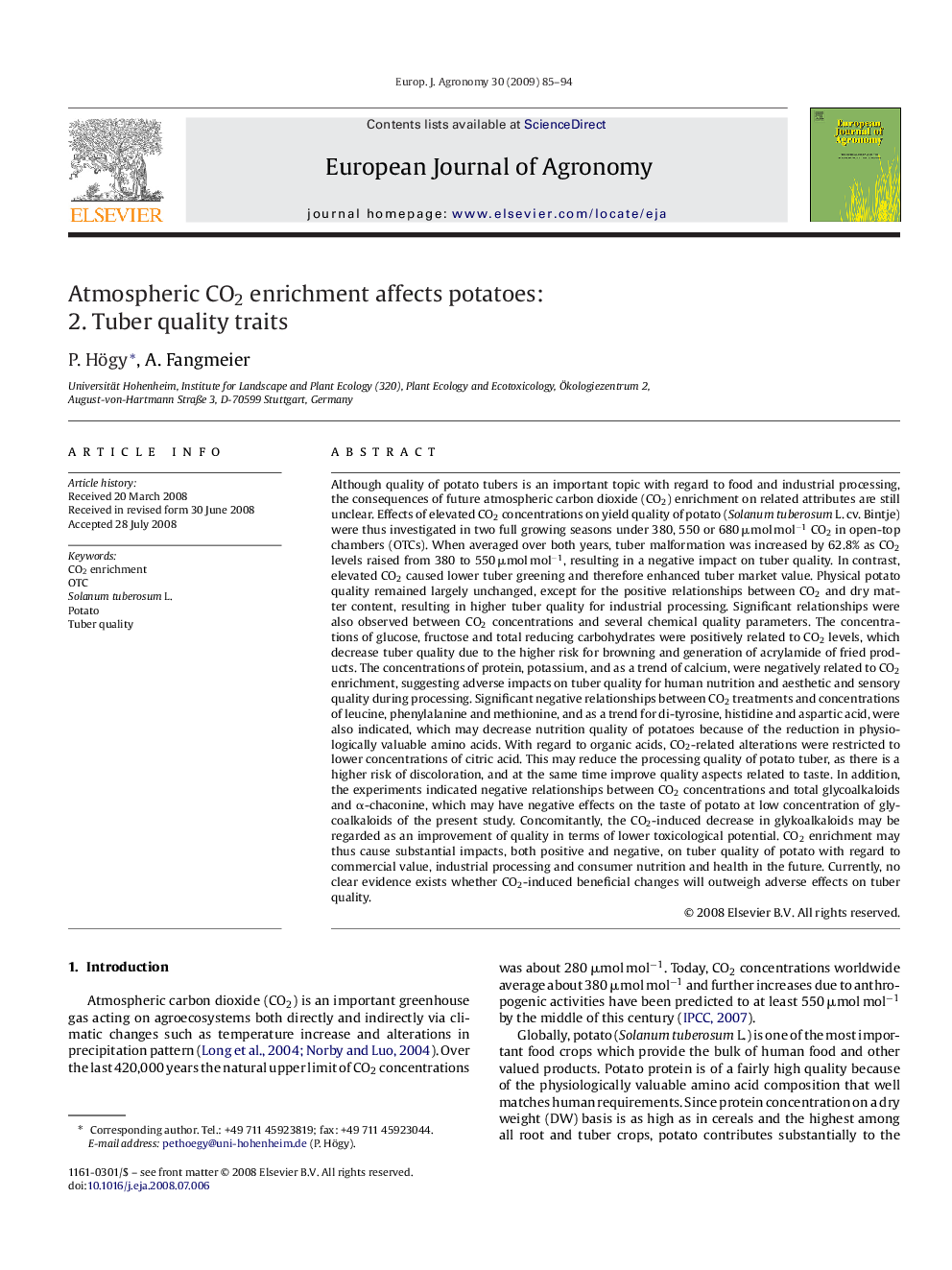| کد مقاله | کد نشریه | سال انتشار | مقاله انگلیسی | نسخه تمام متن |
|---|---|---|---|---|
| 4509507 | 1624513 | 2009 | 10 صفحه PDF | دانلود رایگان |

Although quality of potato tubers is an important topic with regard to food and industrial processing, the consequences of future atmospheric carbon dioxide (CO2) enrichment on related attributes are still unclear. Effects of elevated CO2 concentrations on yield quality of potato (Solanum tuberosum L. cv. Bintje) were thus investigated in two full growing seasons under 380, 550 or 680 μmol mol−1 CO2 in open-top chambers (OTCs). When averaged over both years, tuber malformation was increased by 62.8% as CO2 levels raised from 380 to 550 μmol mol−1, resulting in a negative impact on tuber quality. In contrast, elevated CO2 caused lower tuber greening and therefore enhanced tuber market value. Physical potato quality remained largely unchanged, except for the positive relationships between CO2 and dry matter content, resulting in higher tuber quality for industrial processing. Significant relationships were also observed between CO2 concentrations and several chemical quality parameters. The concentrations of glucose, fructose and total reducing carbohydrates were positively related to CO2 levels, which decrease tuber quality due to the higher risk for browning and generation of acrylamide of fried products. The concentrations of protein, potassium, and as a trend of calcium, were negatively related to CO2 enrichment, suggesting adverse impacts on tuber quality for human nutrition and aesthetic and sensory quality during processing. Significant negative relationships between CO2 treatments and concentrations of leucine, phenylalanine and methionine, and as a trend for di-tyrosine, histidine and aspartic acid, were also indicated, which may decrease nutrition quality of potatoes because of the reduction in physiologically valuable amino acids. With regard to organic acids, CO2-related alterations were restricted to lower concentrations of citric acid. This may reduce the processing quality of potato tuber, as there is a higher risk of discoloration, and at the same time improve quality aspects related to taste. In addition, the experiments indicated negative relationships between CO2 concentrations and total glycoalkaloids and α-chaconine, which may have negative effects on the taste of potato at low concentration of glycoalkaloids of the present study. Concomitantly, the CO2-induced decrease in glykoalkaloids may be regarded as an improvement of quality in terms of lower toxicological potential. CO2 enrichment may thus cause substantial impacts, both positive and negative, on tuber quality of potato with regard to commercial value, industrial processing and consumer nutrition and health in the future. Currently, no clear evidence exists whether CO2-induced beneficial changes will outweigh adverse effects on tuber quality.
Journal: European Journal of Agronomy - Volume 30, Issue 2, February 2009, Pages 85–94